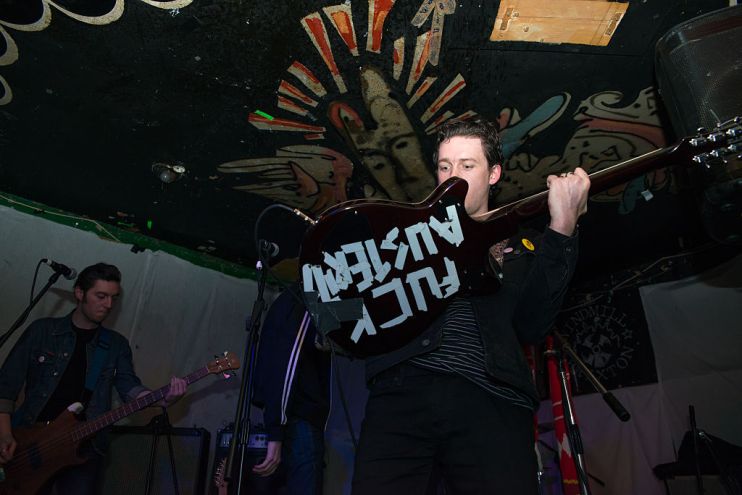Without indy venues, the UK would never have spawned its unique music scenes

Independent venues are the backbone of the UK’s music scene – and they are a boost to the economy too, writes Sybil Bell
The UK is currently midway through Independent Venue Week (IVW), where music fans everywhere from Edinburgh to Guernsey are encouraged to come out and show support for their scene by buying tickets for a show at their local venue. As IVW’s founder, I’ll be visiting seven locations across the UK, including Hull on Thursday to watch our 2024 Ambassadors, the brilliant Leeds-based band, English Teacher, perform a set at the Polar Bear Music Club.
But what is the value of live music to the UK? This week of all weeks, that feels a particularly pertinent question to ask – and a difficult one to answer. In purely economical terms, the figures speak for themselves.
According to former Spotify economist Will Page in 2022 UK music fans spent more than £2bn on tickets to live music events. Although skewed towards large-scale shows at stadiums and festivals – which now constitute around half of all box office spend, compared to 40 per cent in 2019 and a mere 23 per cent in 2012 – the data appears to show a real resilience in the sector, and a confident bounce back after the interminable shutdowns of the pandemic and our slow, socially-distanced return to normality.
Given the UK’s reputation for musical excellence and innovation, there are also many wider impacts to consider – such as the draw of live music on tourism. By their very nature, live events attract a crowd – some of whom travel a very long way to attend. These dynamics are measured annually by the umbrella body UK Music, who last year estimated that domestic and overseas tourists drawn to our gigs, concerts and festivals in 2022 generated spending of £6.6bn and supported 56,000 full-time jobs.
These figures will include the 200 plus venues currently participating in this year’s Independent Venue Week, all of whom play a key part of this narrative.
As with the wider hospitality sector, these businesses might be facing crippling economic challenges right now, but they also generate a positive ripple effect for high streets and communities around the UK.
Instinctively, when you go to a gig, you’ll usually spend money beyond the actual ticket purchase – whether that’s getting a round in before heading to the venue, grabbing a takeaway or a meal out with mates, or using public transport or a taxi to get home afterwards.
Independent venues offer employment and training. They generate opportunities for the next generation of sound engineers, technicians and promoters, as well as bar staff and security. They also, of course, offer a stage for artists to perform, to express themselves, to experiment and to build a scene.
The impacts of that neverending process can be profound. The distinct music cultures of our towns and cities literally define the UK’s social history. The cutting edge and the revolutionary, the much-vaunted ‘next big thing’, will always start in a small room somewhere.
As highlighted in a recent tribute to Independent Venue Week by the spoken word artist Antony Smzierek, who will perform at Wrexham’s Rockin’ Chair venue this Friday: Without these little rooms there’d be no one to fill the ones that are bigger.
And yet there’s still more. Venue owners are custodians. Many maintain buildings with historical significance, as well as diversifying into non-music daytime activities. We regularly see venues offering affordable office and creative spaces to local people, helping regenerate neglected areas and attract other like-minded entrepreneurs. Quite literally, they can help put a town or a city on the map.
This indefinable and intangible cultural value is perhaps the hardest factor to measure and define – but it’s arguably the most important.
A great independent venue is more than a venue. It is a gateway to music and culture. It’s a place for ideas to flourish. A space for everyone, and a beating heart of the community.
Sybil Bell is founder of Independent Venue Week